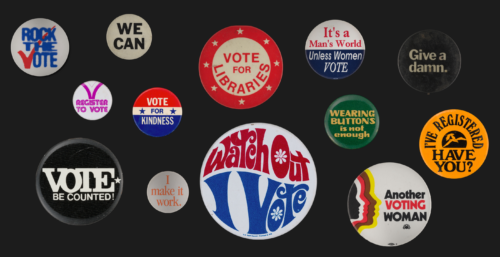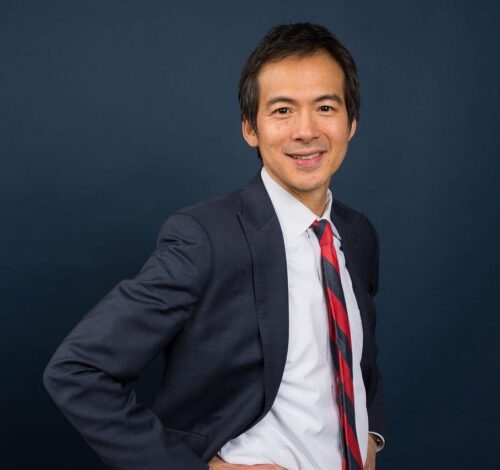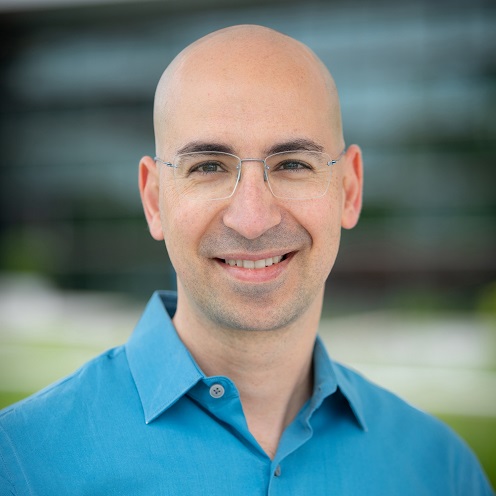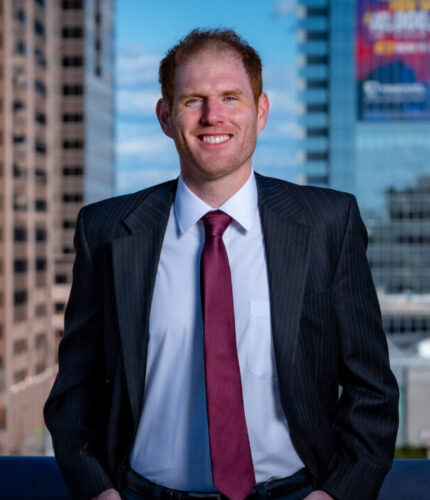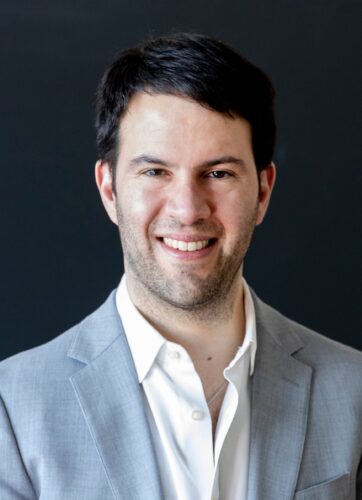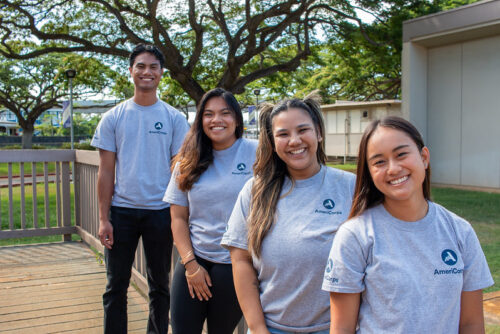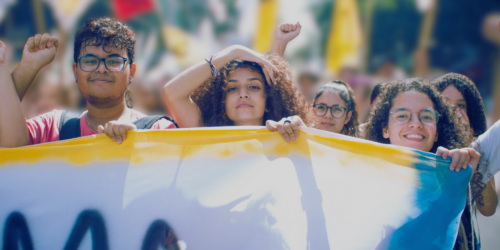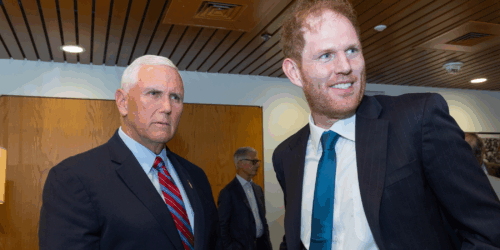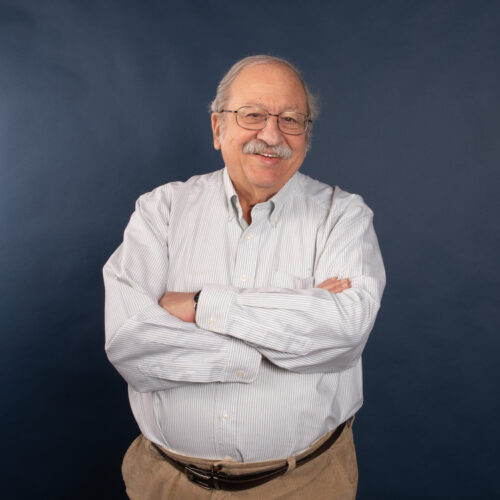
Marshall Ganz
Rita E. Hauser Senior Lecturer in Leadership, Organizing, and Civil Society
At the Ash Center, we’re generating new ideas and insights for the future of civic engagement — everything from voter participation to democratic deliberation.
Allen Lab for Democracy Renovation, American Politics Speaker Series, Nonviolent Action Lab, Reimagining Democracy Program
Civic engagement — from voting to volunteering — is the engine that drives democracy forward. Robust citizen participation at every level of government provides the feedback that democratic systems require to be responsive and productive.
But what happens when people are systemically shut out of deliberation? Can we boost declining voting rates? How will we create a culture of civic engagement in an increasingly digital, AI-influenced world?
These are the questions the Ash Center community works to answer.
Our programs generate novel ideas about making civic engagement more robust, enabling everyone to participate. Ash scholars are researching how citizens can better provide input into government programs, processes, and policies. Together, we are developing a blueprint for what the future of civic engagement can look like.
We encourage you to explore the below events, research, and commentary to learn more about our work.
Rita E. Hauser Senior Lecturer in Leadership, Organizing, and Civil Society
Assistant Clinical Professor of Law
Director, Ash Center for Democratic Governance and Innovation;
Co-Director of the Program on Democracy and the Informed Public;
Winthrop Laflin McCormack Professor of Citizenship and Self-Government
Paul F. McGuire Lecturer in Comparative Politics
Alfred and Rebecca Lin Professor of Computer Science
Senior Practice Fellow in American Democracy, February 2025 - November 2025
Non-resident Senior Practice Fellow in American Democracy, December 2025 - November 2026
Kirkland & Ellis Professor of Law
Director of Research Projects in Democratic Practice
Podcast
White House reporter Annie Linskey offers a closer look at how the Trump White House makes decisions and what recent actions reveal about its strategy.
Additional Resource
In a new essay, The Case for Building an AmeriCorps Alumni Leadership Network, Allen Lab Policy Fellow Sonali Nijhawan argues that the 1.4 million Americans who have completed national service represent an underleveraged civic asset. Drawing on her experience as former Director of AmeriCorps, Nijhawan outlines a roadmap for transforming dispersed alumni into a connected leadership network capable of reinvigorating public service, rebuilding trust in government, and strengthening civic participation.
Podcast
Jonathan Rauch joins the podcast to discuss why he now believes “fascism” accurately describes Trump’s governing style.
Podcast
Drawing on new data from more than 10,000 Trump voters, this episode of Terms of Engagement unpacks the diverse constituencies behind the MAGA label.
Podcast
As Venezuela grapples with authoritarian collapse and a controversial U.S. operation that removed Nicolás Maduro, Freddy Guevara joins the podcast to discuss what Venezuelans are feeling and what democratic renewal might actually look like.
Podcast
In the season 2 premiere of Terms of Engagement, Archon Fung and Stephen Richer revisit January 6 with journalist Mary Clare Jalonick to examine what the January 6 Capitol attack reveals about democratic trust, accountability, and political violence.
Policy Brief
Erica Chenoweth and Matthew Cebul analyze the global surge of Gen Z-led protest movements, showing how economic insecurity, exclusion from power, and corruption are driving youth mobilization worldwide.
Podcast
In the season finale, author and political theorist Laura Field joins co-hosts Archon Fung and Stephen Richer to unpack the ideas and beliefs of the New Right and their impact on elections, race, and public debate.
Podcast
Co-hosts Archon Fung and Stephen Richer unpack the latest developments in the Epstein saga and explore what they reveal about shifting political alignments, growing demands for accountability, and the relationship between power and public trust.
Podcast
Co-hosts Archon Fung and Stephen Richer look back at the last five months of headlines as they celebrate the twentieth episode of Terms of Engagement.
Podcast
Archon Fung and Stephen Richer are joined by Michelle Feldman, political director at Mobile Voting, a nonprofit, nonpartisan initiative working to make voting easier with expanded access to mobile voting.
Podcast
Archon Fung and Stephen Richer discuss whether fusion voting expands representation and strengthens smaller parties—or whether it muddies party lines and confuses voters.
Podcast
Archon Fung and Stephen Richer are joined by University of Pittsburgh’s Lara Putnam to discuss the recent No Kings protest movement.
Commentary
When former Vice President Mike Pence visited Harvard’s Institute of Politics for a discussion on “The Future of Conservatism and American Democracy,” he was introduced not just by a moderator, but by a longtime friend and admirer — Ash Center Senior Fellow Stephen Richer. A former Republican officeholder, Richer has often cited Pence as a personal role model for integrity and constitutional fidelity. Their friendship added a layer of warmth and sincerity to an evening that balanced deep ideological reflection with a spirit of civility and mutual respect.
Video
In a spring Foreign Affairs article, Steven Levitsky, Professor of Government at Harvard University and co-author of How Democracies Die, predicts that “U.S. democracy will likely break down during the second Trump administration, in the sense that it will cease to meet standard criteria for liberal democracy: full adult suffrage, free and fair elections, and broad protection of civil liberties.” In this online event, Virginia Kase Solomón, President and CEO of the national pro-democracy organization Common Cause, will discuss how her organization and others are working to prove him wrong. We’ll explore some decisions by the Trump administration that worry democracy advocates—including election rule changes and military deployments to cities—as well as some of the strategies of democracy advocates, their prospects for success and failure, and what more can be done. Archon Fung, Director of the Ash Center for Democratic Governance and Innovation, will moderate.
